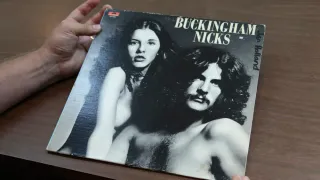October 21, 2014
Out There :: Aromatherapy Reading
Kilian Melloy READ TIME: 4 MIN.
As we've no doubt told you before, Out There is a most promiscuous reader. We're slutty for words on paper, preferably between hard covers. Here's a little of what we've had in our hot little hands lately.
"Fragrant: The Secret Life of Scent" by Mandy Aftel (Riverhead) is a treatise on the history of created scent by the Berkeley author who has been called "the Alice Waters of American natural perfume." The artisan perfumer traces the importance of fragrance through history by discoursing on five landmark scents: Cinnamon, mint, frankincense, ambergris and jasmine. In each case, she attends to the importance of the spice in ancient times, and its degraded, synthetic form in contemporary life. Of cinnamon, "the titan of the spice trade," for example, she quotes author Timothy Morton in "The Poetics of Spice": "Yesterday's banquet ingredient becomes today's Dunkin' Donuts apple cinnamon item." Alas.
Aftel makes a strong case for the powerful sense properties of scent. "As with music, the intangibility of scent allows us to experience it in a state of dreaming imagination. Smell is an invitation to a journey; it allows us to leave the ordinary course of things and go on a trip, to absent ourselves." Its ephemeral nature is key to its power. "Fragrance is fleeting and elusive, and enters us stealthily, at the edge of consciousness, transforming mood, unearthing long-forgotten memories, influencing us without our conscious asset." Sounds like the most exciting lover. The book includes "recipes" for herbal extracts and tinctures, aroma lore, and tidy illustrations.
Maggie's Farm
The New York Times Book Review ran in full the title story from "The Assassination of Margaret Thatcher" (Henry Holt & Company), a collection of fiction by acclaimed author Hilary Mantel (Wolf Hall, Bring Up the Bodies). It's a potent piece of "what if" storytelling, positing a quite plausible scenario in which an IRA operative takes aim at the Tory prime minister as she leaves a London hospital after eye surgery. The medical procedure actually happened (August 6, 1983); the assassination did not. But the grievances against Mrs. Thatcher in the UK were real, many and varied, not just on the part of Irish nationalists, but also from progressives, unions, coal miners, workers, the poor and the disenfranchised. From everyone, in fact, who wasn't a Tory.
As the unnamed narrator says in "Assassination," "It's the fake femininity I can't stand, and the counterfeit voice. The way she boasts about her dad the grocer and what he taught her, but you know she would change it all if she could, and be born to rich people. It's the way she loves the rich, the way she worships them. It's her philistinism, her ignorance, and the way she revels in her ignorance. It's her lack of pity. Why does she need an eye operation? Is it because she can't cry?"
Oh, tell us how you really feel. You mean it wasn't just how she carried her pocketbook like a shield, or the way she walked with a trademark toddle?
Paper Tigers
In "Final Edition," a chapter of his "spiritual autobiography" Darling (Penguin), essayist Richard Rodriguez tells the story of the continuing diminishment of San Francisco daily newspapers. First, some history: "The de Young brothers named their newspaper the Daily Dramatic Chronicle because stranded young men seek entertainment. The city very early developed a taste for limelight that was as urgent as its taste for red light. In 1865 there were competing opera houses in the city; there were six or seven or 12 theaters."
Then, some drama: "In 1884 Michael [de Young] was shot by Adolph Spreckels, the brother of a rival newspaper publisher and the son of the sugar magnate Claus Spreckels, after the Chronicle accused the Spreckels Sugar Company of labor practices in Hawaii amounting to slavery. De Young was not mortally wounded, and Spreckels was acquitted on a claim of reasonable cause."
Finally, the grim present: "We live in the America of USA Today, which appears, unsolicited, in a plastic chrysalis suspended from your doorknob at the Nebraska Holiday Inn or the Maine Marriott. We check the airport weather. We fly from one CNN Headline News monitor to another. We end up where we started." Pressing problems.
Only Connect
Because it's rare to find a film that explores gay stories and traditional Chinese culture at the same time, we pass along this promo blurb about "Lilting," opening on Fri., Oct. 17, at Landmark Theatres in San Francisco and Berkeley.
"Set in contemporary London, Lilting tells the story of a Cambodian-Chinese mother mourning the untimely death of her son. Her world is suddenly disrupted by the presence of a stranger. Though they don't share a common language, a translator helps piece together the memories of a man they both loved. 'Lilting' is a touching film about unlikely connections and the tragedies that bring us together even though we may be worlds apart. Starring Ben Whishaw ('I'm Not There,' 'Brideshead Revisited,' 'Cloud Atlas,' and Q in 'Skyfall') and Cheng Pei Pei (Asian cinema martial arts legend and Hong Kong's first action heroine, widely known as Jade Fox in Ang Lee's 'Crouching Tiger Hidden Dragon'), and also starring Andrew Leung. Director Hong Khaou was named one of the 'Stars of Tomorrow' in Screen International." It's on our must-see list.
Kilian Melloy serves as EDGE Media Network's Associate Arts Editor and Staff Contributor. His professional memberships include the National Lesbian & Gay Journalists Association, the Boston Online Film Critics Association, The Gay and Lesbian Entertainment Critics Association, and the Boston Theater Critics Association's Elliot Norton Awards Committee.







